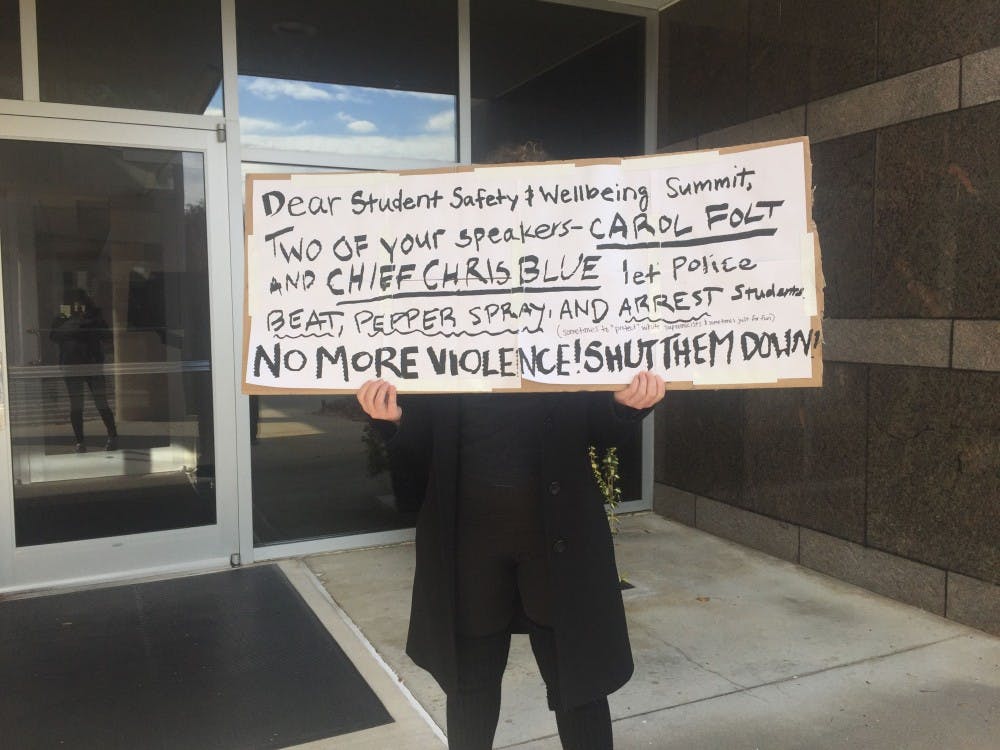While speakers gave their opening remarks at a Friday conference on student safety, students and community members stood at the entrance of the William and Ida Friday Center, signs in hand, protesting the summit’s inclusion of Chancellor Carol Folt and Chapel Hill Chief of Police Chris Blue.
The Summit on Student Safety and Wellbeing: A Call to Action was organized by deans from the Schools of Education, Medicine, Public Health and Social Work. By 2:30 p.m., a half hour after the summit officially started, a small group of protesters had gathered at the entrance.
“I don’t believe (Folt and Blue are) experts on student safety,” said Calvin Deutschbein, a fourth-year computer science Ph.D. student. “I believe their actions have been antithetical to student safety, especially on campus, but in the broader communitym as well.”
Folt did not attend the summit, but Blue led a session on school resource officers on the second day of the conference.
“(Folt) wasn’t able to attend and the provost came in her stead, but it was an indication from the chancellor and the provost of how important this topic is,” Mike Hobbs, spokesperson for the School of Education, said. “My understanding is that Chief Blue was invited also as a demonstration of how important these questions and issues are for law enforcement.”
The summit focused on different approaches to solving K-12 school safety issues.
“We recognize at the School of Education that a lot of the issues that students and educators face in schools cut across a lot of different dimensions and disciplines,” Hobbs said. “I think a lot of the problems that we’ve seen in schools on safety issues recently demonstrate that: mental health issues, drug issues, bullying, gender issues, there’s a lot going on in our schools that require attention from different directions.”
Lucia Mock, a third-year doctoral student in the School of Education, hoped the conference would focus discussion on mass shootings, issues of white supremacy and the protection of students at protests.
“As a white woman, I’m as safe as I can be,” Mock said. “I certainly don’t feel safe as a student when I’m protesting the Confederate monuments. I don’t feel safe as a student at the School of Education when I express my concerns. They tried to have us arrested last year for protesting, so there’s certainly a misunderstanding of what safety and wellbeing is. Or maybe not. They mean safety and wellbeing for certain students, not for others.”



